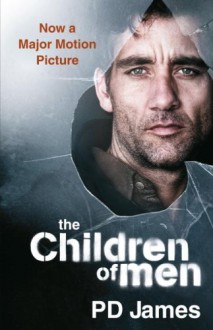
„Alice im Wunderland“ ist eine der Geschichten meines Lebens. Der Klassiker von Lewis Carroll begleitet mich, seit ich ein kleines Mädchen war. Ich besaß sie als Hörbuch auf Schallplatte und die 1951er Disney-Verfilmung auf Videokassette. Selbstverständlich habe ich auch die modernen Filme mit Johnny Depp gesehen. Mit meinem Tätowierer arbeite ich aktuell an meinem großen Waden-Tattoo, das die Grinsekatze, Herrn Knauf und den verwirrenden Wegweiser-Baum enthält. Die Geschichte fasziniert mich wie kaum eine zweite. Als ich erfuhr, dass die Autorin Christina Henry eine Adaption namens „Alice“ geschrieben hatte, war ich sofort Feuer und Flamme, weil das Buch die berühmte Protagonistin in einer prekären Rolle zeigt: als Insassin einer Psychiatrie.
In einem Krankenhaus in der Altstadt, hinter dicken Backsteinmauern, vegetiert eine junge Frau in einer Zelle vor sich hin. Sie wurde eingesperrt, weil sie blutüberströmt eine verrückte Geschichte von einem Kaninchen und einer Tee-Party erzählte. Ihr Name lautet Alice. Seit 10 Jahren ist die Anstalt ihre Herberge. Ihr einziger Gefährte ist ihr Zellennachbar Hatcher. Alice weiß, dass sie niemals entlassen werden wird. Sie ist kaputt, beschädigt. Erst als in den Tiefen der Anstalt ein verheerendes Feuer ausbricht, eröffnet sich ihr und Hatcher ein Weg in die Freiheit. Aber sie sind nicht die einzigen, die den Flammen entkommen. Das Feuer befreit eine entsetzliche Kreatur, die hungrig und wahllos tötet. Alice und Hatcher müssen sie aufhalten. Sie steigen in die dunkelsten, gefährlichsten Orte der Altstadt hinab, doch je näher sie ihrem Ziel kommen, desto näher kommen sie auch der Wahrheit über Alice‘ Vergangenheit – und dem Mann, der sie noch immer als sein Eigentum betrachtet…
Von Christina Henry dürfen sich alle Autor_innen von Adaptionen gern eine Scheibe abschneiden. „Alice“ ist eine hervorragende, hypnotische Variante des Klassikers von Lewis Carroll. Obwohl ich ursprünglich nicht erwartet hatte, eine Handlung vorzufinden, die Alice‘ Schicksal nach ihren Abenteuern beleuchtet, sondern annahm, ich müsste herausfinden, ob sie sich das Wunderland lediglich eingebildet hatte, konnte ich mich sehr schnell darauf einlassen. Die Frage, was mit Alice nach ihrer Rückkehr geschehen wäre, beschäftigt mich, seit ich alt genug bin, darüber zu spekulieren. Es erscheint mir nicht unwahrscheinlich, dass sie in einer psychiatrischen Anstalt gelandet wäre, denn wer hätte ihr ihre verrückte Geschichte schon geglaubt? Henrys Version ist deutlich düsterer, blutiger und gewalttätiger, als ich es mir jemals ausgemalt hätte, doch denke ich an das Original zurück, muss ich zugeben, dass es sich dabei ebenfalls nicht um ein unschuldiges Kinderbuch handelt, schaut man genau hin. Auch in Carrolls Wunderland brodelte das Potential der Gewalt meinem Empfinden nach stets nur knapp unter der Oberfläche. Deshalb finde ich „Alice“ großartig: Christina Henry erfasst das Wesen der ursprünglichen Geschichte pointiert und charakterisiert die Figuren exakt so, wie ich sie immer wahrgenommen hatte. Niemand ist Alice ausschließlich wohlgesinnt; sie sind alle sehr ambivalent, hinterlistig und maximal bedingt vertrauenswürdig, nämlich so lange, wie es ihren Zielen entspricht. Henry übertrug diese zwielichtige Ausstrahlung perfekt auf ihre Adaption, sodass ihr Roman authentisch und originell gelang. Sie entwickelte ein fiktives, vage fantastisches Setting, dessen sonderbare Atmosphäre alle Elemente, die nicht rational erklärbar sind, elegant legitimiert und in dessen Rahmen ihre ältere, traumatisierte Alice grob der Reise von Carrolls Heldin folgt. Nominell besteht ihre Aufgabe darin, die Kreatur zu besiegen, die durch das Feuer in der Anstalt befreit wurde, in der sie 10 lange Jahre einsaß. Ich vergaß jedoch immer wieder, dass dies der Kern der Handlung ist, weil die Konfrontationen mit den bekannten, nun aber menschlichen Figuren des Wunderlands wesentlich drängender und präsenter waren und darüber hinaus von Alice‘ persönlicher Entwicklung überstrahlt wurde. Alice ist 26 Jahre alt und verbrachte den Großteil ihrer Jugend in der Psychiatrie. Es gefiel mir ausnehmend gut, wie psychologisch glaubwürdig Henry ihre Protagonistin beschreibt, indem sie einkalkuliert, dass sie die normalen Erfahrungen des Erwachsenwerdens verpasste. Erst im Verlauf ihres Abenteuers entfaltet sie sich und findet heraus, was in ihr steckt – Courage, Loyalität und Entschlossenheit. Ich empfinde „Alice“ daher als verspätete Coming-of-Age-Geschichte, in der der Weg das Ziel ist und es nicht überraschen sollte, dass der Kampf gegen das Monster eher hintergründig von Bedeutung ist. Resultierend daraus gestaltet sich der finale, äußerst feminine Showdown recht unspektakulär, weil dieser die logische Konsequenz von Alice‘ Metamorphose darstellt. Sie durchlebte eine klassische Heldenreise; sobald sie fähig ist, ihr Schicksal und sich selbst zu akzeptieren, werden alle Herausforderungen zum Kinderspiel.
„Alice“ von Christina Henry ist eine dunkle, verdrehte Variante des Kinderbuchklassikers von Lewis Carroll. Es ist eine Adaption, die meinen Geschmack voll und ganz trifft, weil sie meiner intuitiven Wahrnehmung des Originals Form verleiht und diese auf Papier bannt. Die Autorin erfasst die inhärente Natur und Bedeutung der ikonischen Geschichte zielsicher und transformiert diese in eine Erzählung, die neu und frisch wirkt und dennoch das Charisma, die unverwechselbare Aura des populären Stoffes aufgreift. Wer die eigenen Kindheitserinnerungen an „Alice im Wunderland“ unangetastet lassen möchte oder sensibel auf gewaltsame Szenen reagiert, sollte von der Lektüre eher Abstand nehmen, doch allen Leser_innen, die eine erwachsene, erwachte Alice kennenlernen möchten, kann ich das Buch wärmstens empfehlen. Ich freue mich auf die Fortsetzung „Red Queen“ und nehme Anlauf für einen weiteren Sturz durch das Kaninchenloch.


 Log in with Facebook
Log in with Facebook 











